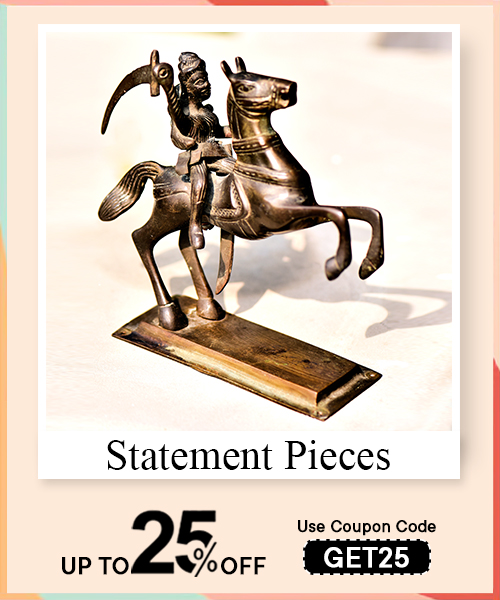Maharaja Agrasen was a revered ancient king known for his social justice and communal harmony principles. He is celebrated for his efforts to promote equality and welfare within his kingdom, laying the foundation for the Agrawal community’s values of entrepreneurship and philanthropy. His leadership and reforms have left a lasting impact on societal values.
Maharaja Agrasen is traditionally believed to have been born in Agroha, an ancient city in present-day Haryana, India. The exact date of his birth has yet to be definitively recorded.
Maharaja Agrasen Jayanti in 2025 will be celebrated on Monday, September 22nd. This auspicious occasion commemorates the birth of Maharaja Agrasen, a revered king and the legendary founder of the Agrawal and Agrahari communities. Known for his vision of a just and prosperous society, Maharaja Agrasen championed the principles of non-violence, economic equality, and social harmony. His philosophy was rooted in the idea of collective welfare, he established a rule where newcomers to his kingdom were supported by each household donating one coin, ensuring financial stability for all.
The celebration of Agrasen Jayanti is particularly significant in North India, with grand events organized in states like Uttar Pradesh, Rajasthan, Haryana, and Delhi. Devotees pay homage through religious ceremonies, processions, and community feasts. Temples dedicated to Maharaja Agrasen witness special prayers and discourses on his teachings. Many followers also engage in charitable acts, reinforcing his legacy of generosity and social upliftment. The day serves as a reminder of his timeless principles, inspiring people to uphold values of unity, fairness, and mutual support in modern society.
Maharaja Agrasen is a legendary figure traditionally placed around the 6th century BCE, though precise historical details still need to be discovered. His reign is noted for several vital contributions that have left a lasting impact. One of his most significant achievements is the construction of the Agrasen ki Baoli, a prominent stepwell in Delhi. This architectural marvel provided a vital water source and served as an essential social and community space, reflecting Agrasen’s commitment to infrastructure that benefited the public.
Agrasen’s promotion of trade and commerce was another cornerstone of his rule. He actively encouraged economic activities, which played a crucial role in boosting the prosperity of his kingdom. His policies and support for trade helped establish a thriving economy and facilitated the growth of a robust trade network.
In addition to his economic contributions, Maharaja Agrasen is often associated with the founding of the Agrawal community. This community, historically engaged in trade and business, reflects Agrasen’s influence on his time's social and economic structure. Through his various initiatives, Agrasen shaped the financial landscape and contributed to the development of a socially cohesive and prosperous society.
Read More:Yamuna Chhath: Celebrating Hindu Tradition and River Worship
Maharaja Agrasen’s principles had a lasting impact on his kingdom’s social and governance structures:
- Agrasen made significant contributions to trade, social equality, and governance, focusing on trade and commerce to boost economic stability and create a strong trade network that improved his kingdom's prosperity.
- He promoted social equality and inclusiveness, ensuring equal opportunities for everyone, which helped build a united and supportive community.
- Agrasen's governance was marked by fairness and a focus on the welfare of his people, balancing effective administration with his subjects' well-being. These principles shaped the kingdom's social and economic fabric.
- Encouragement of Trade and Commerce: Agrasen supported trade and economic development, reflecting his vision for prosperity.
- Ethics and Integrity: He emphasized honest and ethical business practices and promoted integrity in personal and professional life.
- Social Welfare and Equality: The celebration focuses on his commitment to social welfare and equality, honoring his efforts to create a just and inclusive society.
- Community Support: Maharaja Agrasen Jayanti reminds us of the importance of community, unity, and mutual support, reflecting Agrasen’s vision for a supportive and cohesive community.
The precise date of Maharaja Agrasen's death is not well-documented. However, he is honored annually on Maharaja Agrasen Jayanti, which falls on the Hindu calendar's fourth day of the Ashwin month.
These are Airan, Goyal, Mangal, Bansal, Mittal, Kansal, Bindal, Goyan, Jindal, Nangal, Singhal, Dharan, Kucchal, Tayal, Garg Madhukul, Tingal, and Bhandal.
According to Bharatendu Harishchandra's account, Maharaja Agrasen was a Suryavanshi Kshatriya king. Born during the last stages of Dwapar Yuga in the Mahabharat epic era, he was contemporary with Lord Krishna. He was King Vallabha Dev's son, the descendant of Kush (Lord Rama's son).
Read More:Gandhi Jayanti
In the swayamvara, Princess Madhavi selected Prince Agrasen by putting the garland on him. This marriage brought together two different family cultures: Prince Agrasen was a Suryavanshi, and Princess Madhavi was a Naagavanshi.
Agrasen, according to some chronicles, was the father of Kansa and Devaki (mother of Lord Krishna). Some accounts hold his kingdom was known as Pratapnagar, and that he had fought and defeated the rain god, who coveted the ruler's wife.
Maharaja Agrasen Jayanti marks the birth anniversary of Maharaja Agrasen, a prominent figure in Indian history. The festival’s origins trace back to the Vedic period and celebrate his contributions and virtues. Over time, it has evolved into a major cultural event, highlighting his legacy and values in various communities.

Celebrations vary by region but typically include community gatherings, religious rituals, and cultural programs. In northern India, particularly in Haryana and Rajasthan, people organize processions, fairs, and community meals. Special prayers and social service activities are conducted in other areas to honor his legacy.
Essential rituals include performing special prayers and offering charitable donations in Maharaja Agrasen’s honor. Temples dedicated to him often host devotional songs and hymns. Community service activities, such as food distribution and medical camps, are also daily tributes to his emphasis on social welfare.
Maharaja Agrasen is celebrated for his commitment to social equality and charitable work. He is known for his initiatives to support the underprivileged and promote societal fairness. His leadership style emphasized the welfare of all, irrespective of social status, which has cemented his legacy as a proponent of social justice.
Traditional foods for Maharaja Agrasen Jayanti include sweets and festive dishes like puris, chole, and halwa. Special dishes are often prepared for community feasts, symbolizing abundance and shared joy. These meals reflect the spirit of generosity and communal harmony that Maharaja Agrasen championed.
People can celebrate by participating in community service, organizing or attending cultural events, and engaging in acts of charity. Learning about Maharaja Agrasen’s teachings and sharing his values with others is also a meaningful way to foster unity and service.
In contemporary society, Maharaja Agrasen Jayanti reminds people of the values of social justice, community service, and unity. It provides an opportunity to reflect on and engage in activities that promote these values, reinforcing their relevance in today’s world.
The festival can inspire positive change by encouraging individuals and communities to embrace fairness, charity, and social responsibility. Maharaja Agrasen’s values can address social issues and foster harmony through community service and advocacy for social equity.
Notable events include large community gatherings, religious processions, and fairs. In particular, ceremonies in temples dedicated to Maharaja Agrasen are held in many regions, along with cultural performances and public lectures highlighting his contributions and values.
Symbols often include representations of his royal insignia and emblems that signify his commitment to justice and welfare. These symbols serve as reminders of his legacy and are used during celebrations to honor his memory.
Various community leaders, religious figures, and organizations actively promote Maharaja Agrasen Jayanti, often organizing public events and educational campaigns to raise awareness about his contributions and values. Their efforts help keep his legacy alive and relevant in modern times.
One inspiring story is Maharaja Agrasen’s establishment of a trade and commerce system that supported his subjects' well-being. His efforts to create a fair and prosperous society are often cited as examples of his commitment to justice and community welfare.
The younger generation can learn about Maharaja Agrasen Jayanti through educational programs, community events, and cultural workshops. Engaging with the festival’s traditions can involve participating in celebrations, volunteering for community service, and exploring the historical and cultural significance of Maharaja Agrasen’s life and teachings.
Maharaja Agrasen Jayanti celebrates the enduring legacy and values of Maharaja Agrasen, a revered figure in Indian history. This festival highlights his remarkable contributions to trade, social equality, and fair governance. Agrasen’s promotion of economic prosperity through trade, his commitment to creating a socially inclusive and equitable society, and his just and welfare-oriented governance model are central to the celebration.
Read More:Janmashtami: Celebrating the Birth of Lord Krishna
During Maharaja Agrasen Jayanti, people reflect on his teachings and achievements, emphasizing the importance of ethical practices, community support, and social justice. The festival not only honors his historical contributions but also serves as a reminder of the values he championed, encouraging individuals and communities to uphold principles of integrity, fairness, and mutual support in their own lives. Through various commemorative activities and reflections, Maharaja Agrasen Jayanti continues to inspire and reinforce these enduring ideals.















